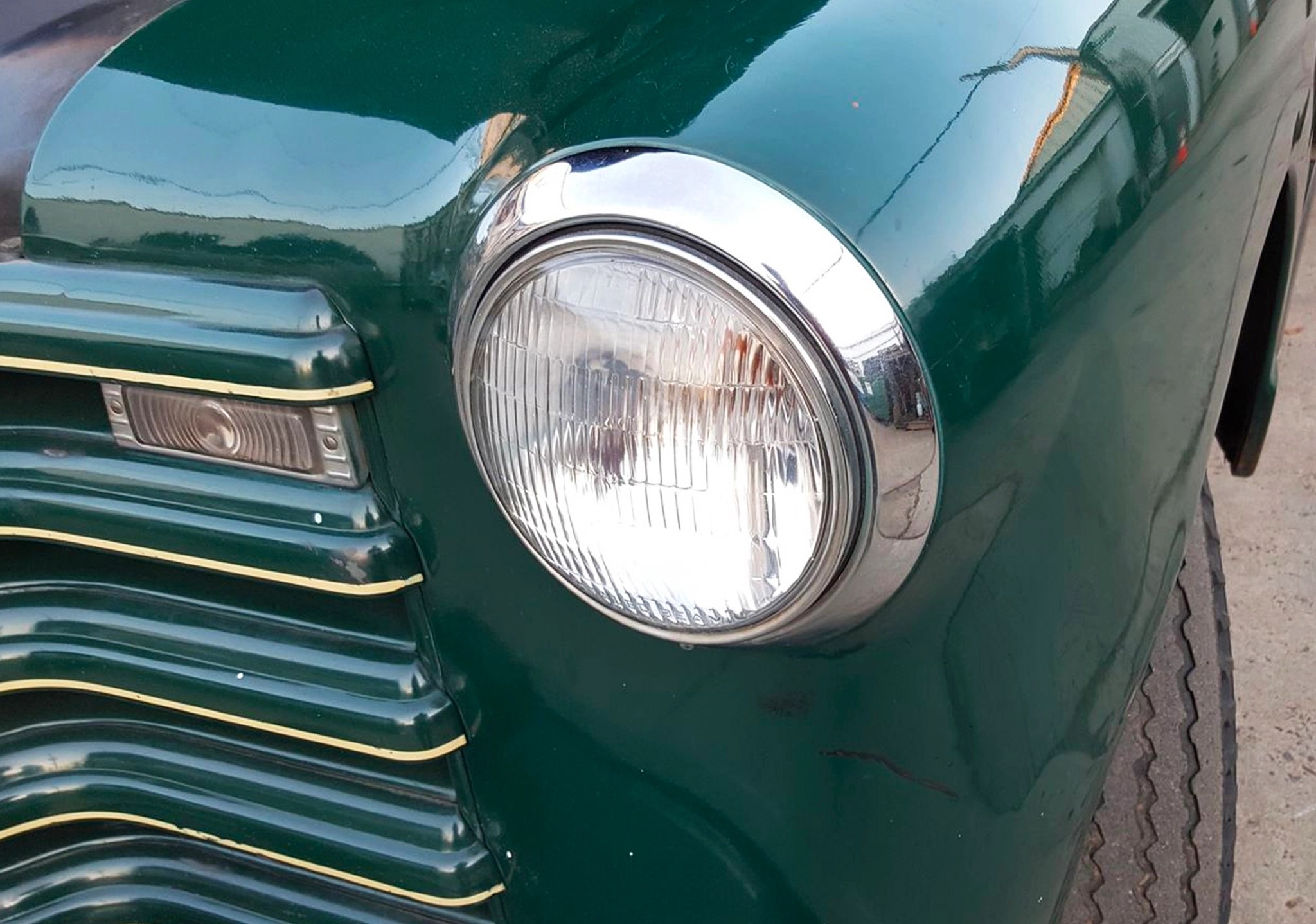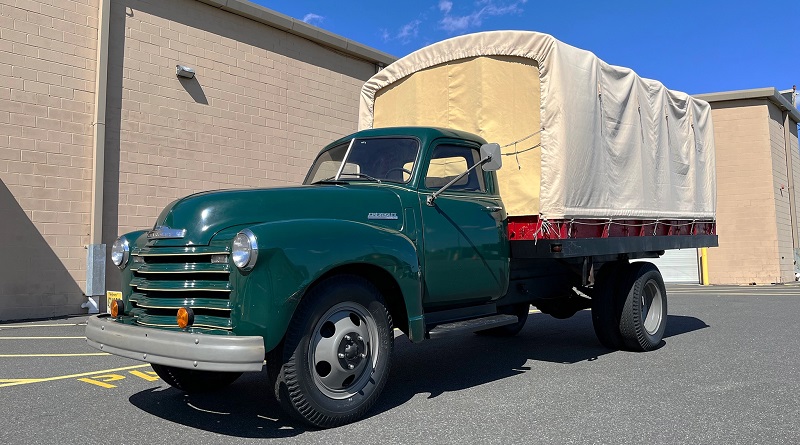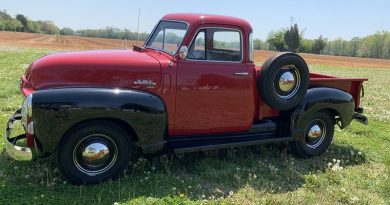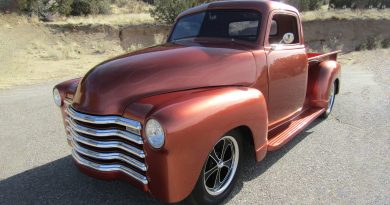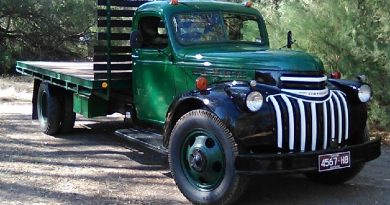1947 Chevrolet Loadmaster Dump Truck
Chevrolet Loadmaster w/dual rear wheels. Chevrolet’s first major redesign after WWII. It was billed as a larger, stronger, and sleeker design referred to as the Advanced Design Model. First available in June 1947, these trucks were sold with various minor changes over the years until March, 1955, when the Task Force Series trucks were introduced. From 1947 until 1955, Chevrolet trucks were the number one seller in America.
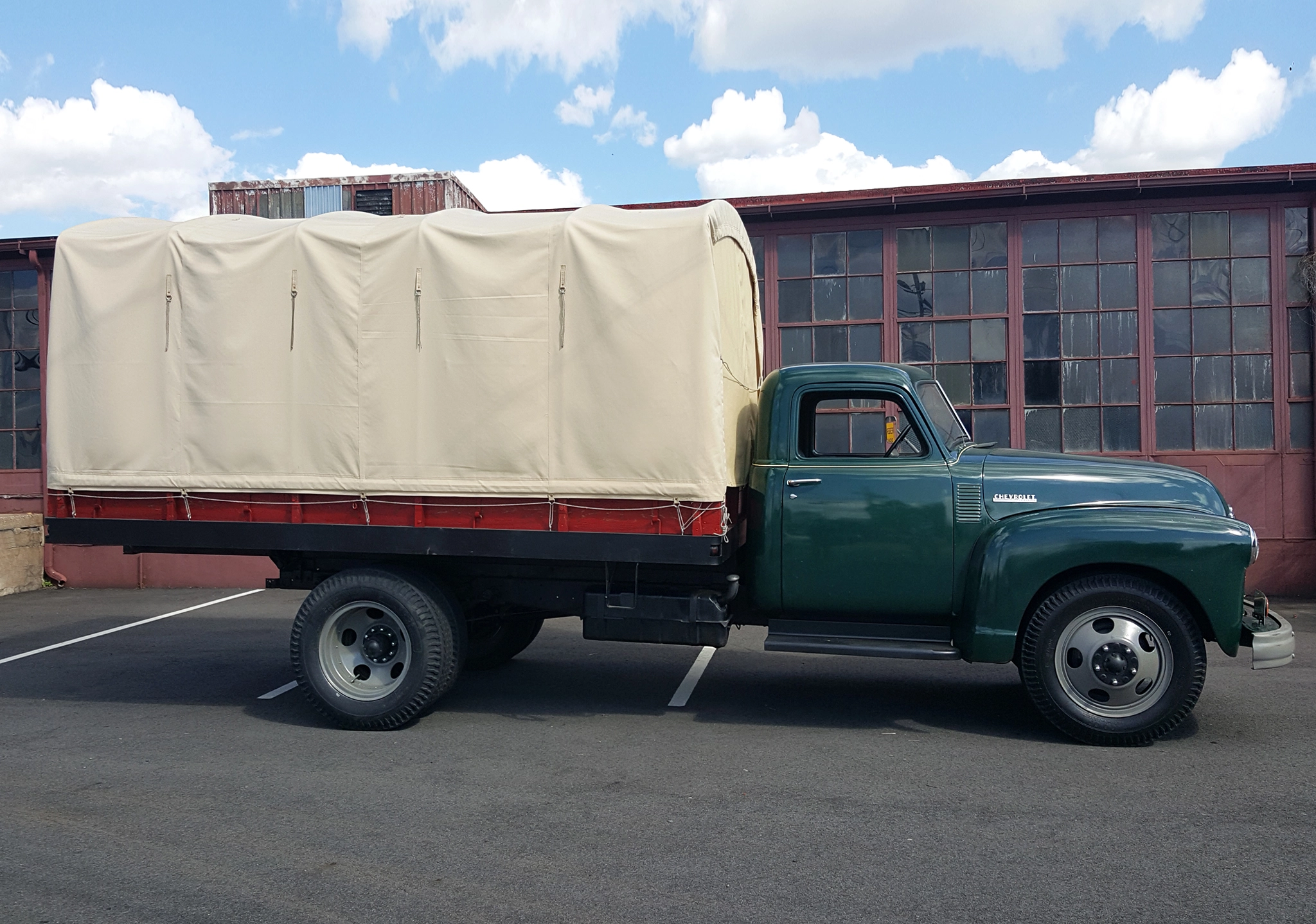
This 1947 Chevrolet Loadmaster is a two-ton truck that is finished in Forrester Green over brown and powered by a 235ci inline-six paired with an unsynchronized four-speed manual transmission.
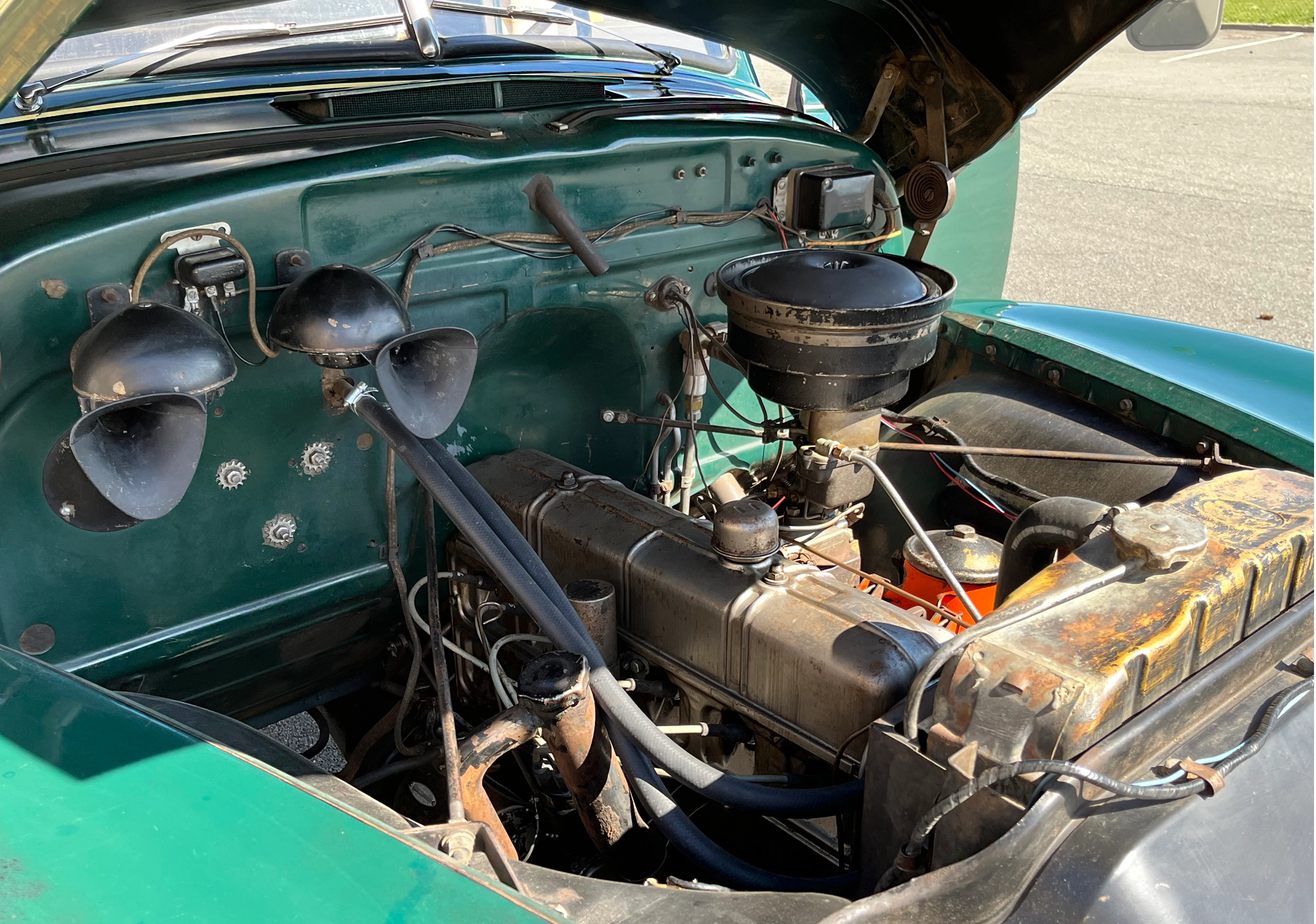
Chevrolet’s Advance Design trucks were introduced for the 1947 model year and remained in production through early 1955. This two-ton Loadmaster example is finished in Forrester Green with painted pinstriping and is equipped with a standard cab, a hydraulic dump bed, a custom steel bow frame, heavy-duty canvas bed cover, running boards, a painted front bumper, and a color-matched grille.
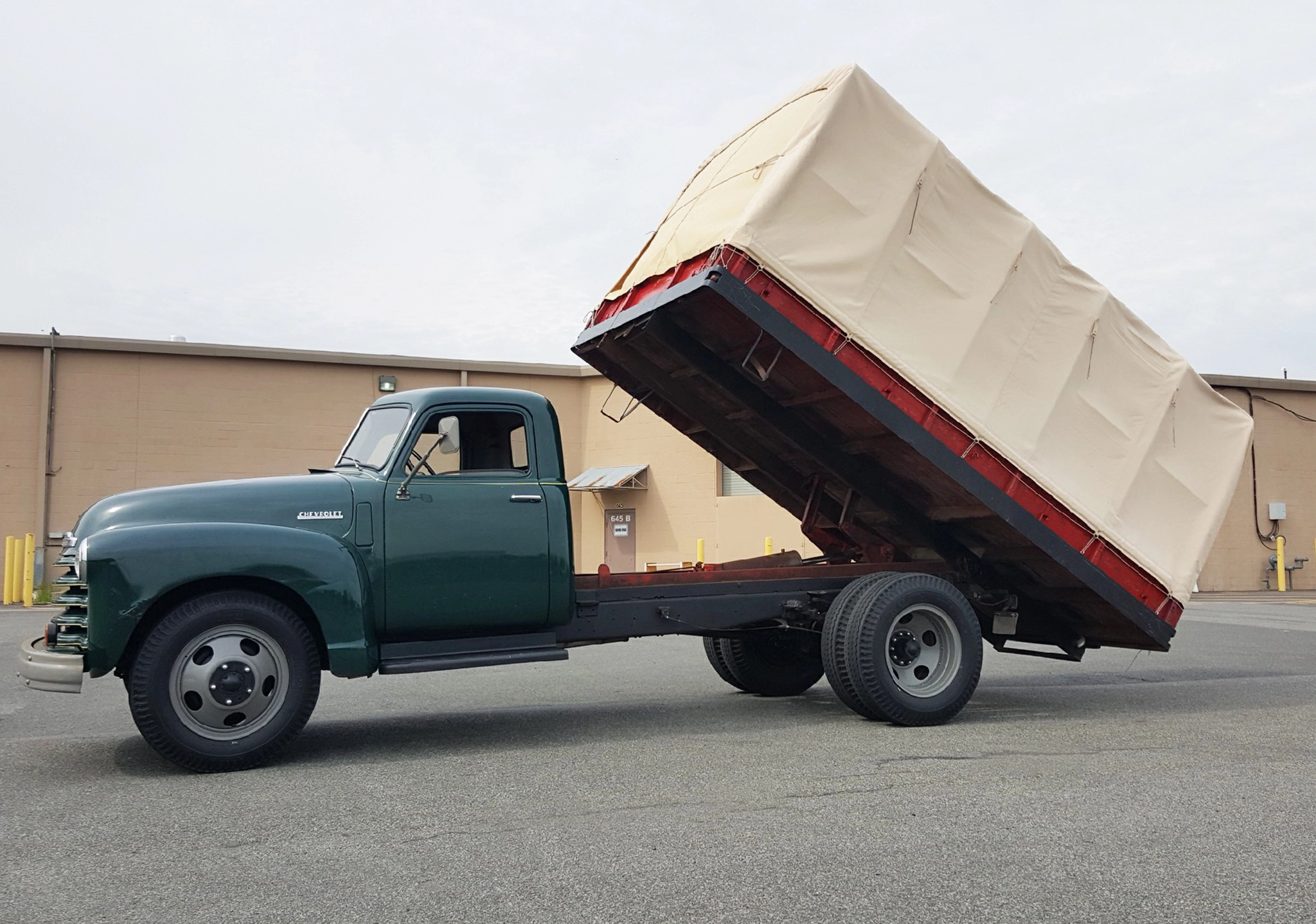
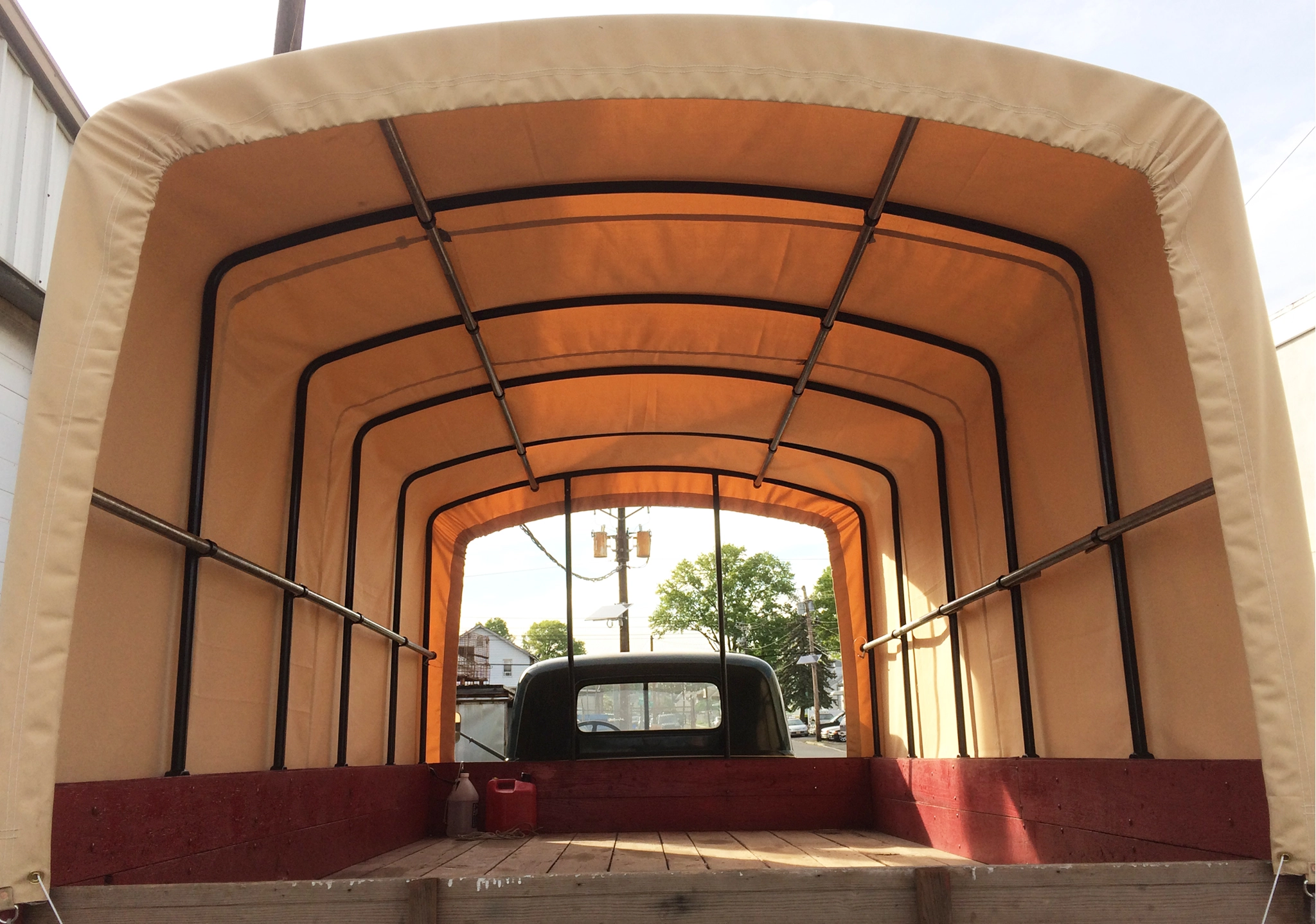
The 20″ painted steel wheels are mounted with CO-OP Farm-N-Market tires. The truck is equipped with a dual-rear-wheel setup, and braking is handled by Hydro-Vac-assisted drums at all four corners.
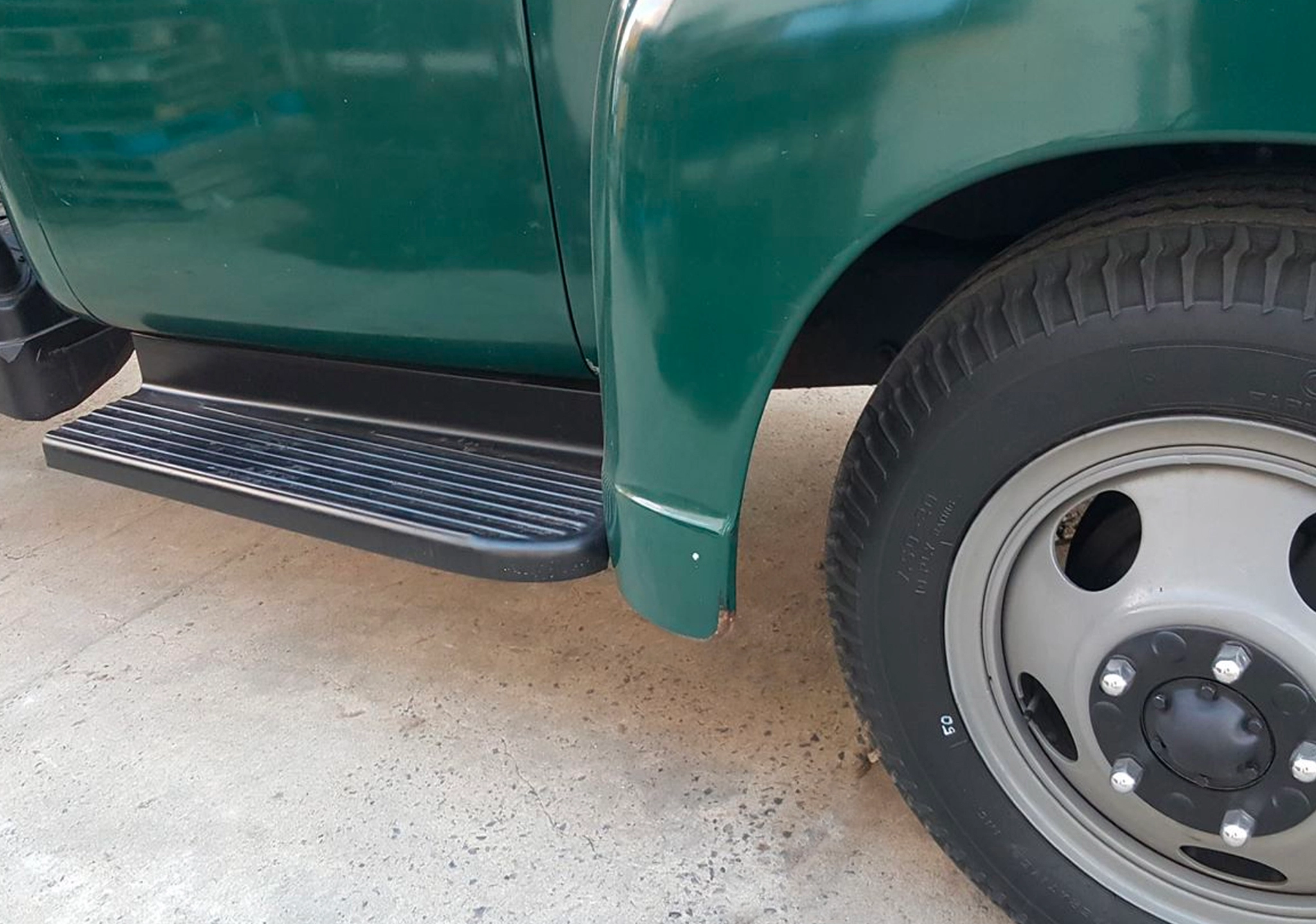
The cabin features a bench seat upholstered in brown vinyl. Equipment includes a painted dashboard and door panels, a rubber floor covering, a floor-mounted shifter and PTO levers, a turn signal stalk, a cab heater, and crank windows. The rubber door seals, body mount bushings, felt window channels, headliner, door panels, and fender welting. The interior floor was reportedly sand-blasted, primed, painted, and re-caulked. The three-spoke steering wheel frames an 80-mph speedometer and a combination gauge with readouts for fuel level, battery voltage, oil pressure, and coolant temperature.
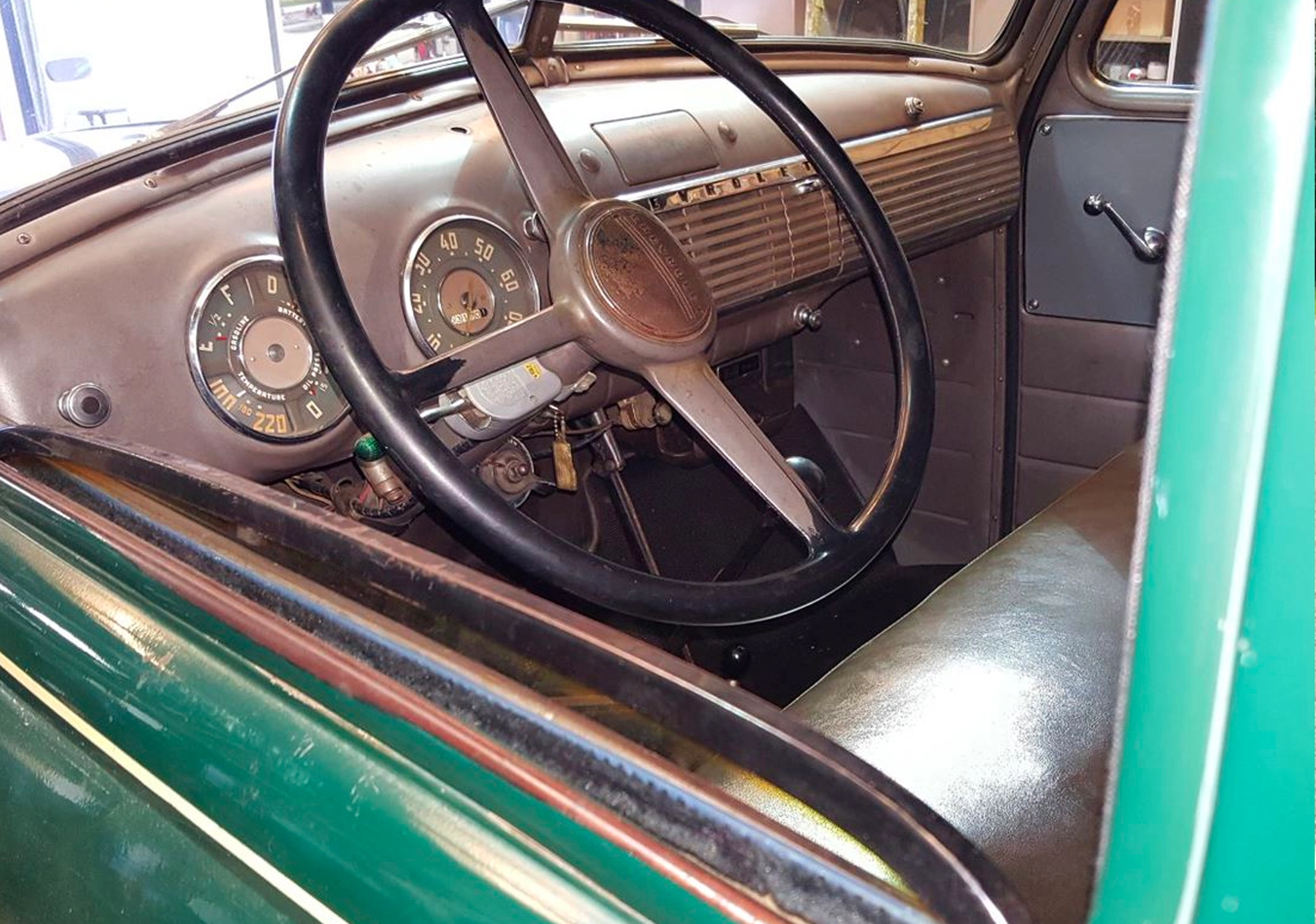
Heavy-Duty Farm Trucks & Grain Trucks are a crucial part of any farming operation that can do it all, from hauling tools and equipment to bringing in the crop. Farm trucks are the workhorses of agricultural operations the world over because they are so versatile.
